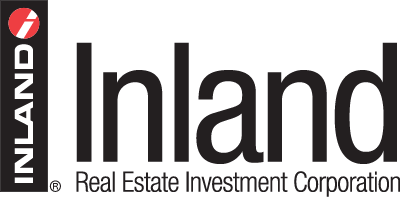Tailoring the right strategy to the unique needs of every client
A real estate strategy can be a cornerstone of a well-diversified portfolio, offering opportunities for income, appreciation, and tax benefits. Understanding the various structures within private real estate is crucial to matching the right strategy with the right investment need.
This article explores how a 1031 exchange via a Delaware statutory trust (DST) can meet the needs of several investor profiles. Keep in mind that each investor’s tax situation is different and they should consult their tax advisor.
Understanding the 1031 DST
A 1031 exchange, named after Section 1031 of the Internal Revenue Code, allows investors to defer capital gains taxes on the sale of an income-producing property by reinvesting the proceeds into a “like-kind property.” A DST is a legal entity created as a trust under Delaware law that meets Section 1031 “like-kind property” requirements, and can allow multiple investors to hold fractional interests in the DST, which holds title to the real estate. This structure provides several benefits and is suitable for the following types of investors:
The Passive Real Estate Investor
Passive real estate investors seek to enjoy the benefits of real estate ownership without the responsibilities of day-to-day management. These investors typically value the ability to delegate property management to experienced professionals while reaping the rewards of property appreciation and income generation.
Benefits for Passive Investors:
- Tax Deferral: By utilizing a 1031 exchange via a DST, investors can defer capital gains taxes, allowing for maximization of investment capital.
- Professional Management: DSTs are managed by professional property managers, relieving investors of the burdens of property maintenance, tenant issues, and other operational tasks.
- Property Upgrading: Investing in a DST provides access to institutional-grade properties that otherwise may be out of reach for most individual investors.
The Estate Planner
Estate planning investors are focused on efficiently passing wealth to their heirs, often seeking strategies that minimize tax liabilities and ensure a smooth transition of assets.
Advantages for Estate Planners:
- Tax Deferral and Step-Up in Basis: By deferring capital gains taxes through a DST, investors can preserve more of the estate’s value. Upon death, heirs receive a step-up in basis, which can significantly reduce or eliminate capital gains taxes if the property is sold.
- Preservation of Wealth: DSTs can enable investors to maintain real estate holdings without the need for active management, ensuring that properties are professionally managed and maintained for future generations.
- Fractional Ownership: Heirs can inherit fractional interests in DSTs, allowing for easier distribution of assets among multiple beneficiaries and avoiding potential disputes.
The Income and Growth Investor
Income and growth investors seek a balance between a consistent income stream and moderate capital appreciation. These investors often look for vehicles that provide both stability and potential for value growth.
Suitability for Income and Growth Investors:
- Durable Income Streams: DSTs often invest in properties with long-term leases to creditworthy tenants, which can provide stable and predictable income streams.
- Moderate Capital Appreciation: While the primary focus of a DST strategy is usually income, the underlying properties can appreciate over time, offering potential for capital growth.
- Tax Advantages: The deferral of capital gains taxes through a DST allows investors to reinvest a larger amount of capital, potentially enhancing overall returns.
Limitations to Consider
While a 1031 exchange via a DST can offer numerous benefits, it is important to be aware of some potential drawbacks:
- Illiquidity: DST investments are relatively illiquid compared to publicly traded assets, making it difficult to quickly access invested capital.
- Lack of Control: Investors have limited to no control over the management and operations of the properties held via a DST, which may not suit those who prefer a hands-on approach.
- Holding Period: DSTs typically require a longer hold period, which may not align with all investors’ timelines.
Importance of Working with an Experienced Sponsor
Selecting a reputable and experienced sponsor is crucial to the success of a 1031 exchange via a DST. Sponsors are responsible for acquiring, managing, and eventually selling the properties within the DST. An experienced sponsor will have a proven track record, comprehensive market knowledge, and the expertise to navigate complex transactions, helping to ensure that investors' interests are well-protected.
The 1031 DST exchange is a versatile and beneficial structure for various types of investors, each with unique needs and goals. By understanding the specific advantages and potential drawbacks, you can better tailor your strategies to meet the individual requirements of your clients. Each investor’s tax situation is different and they should consult their tax advisor.




